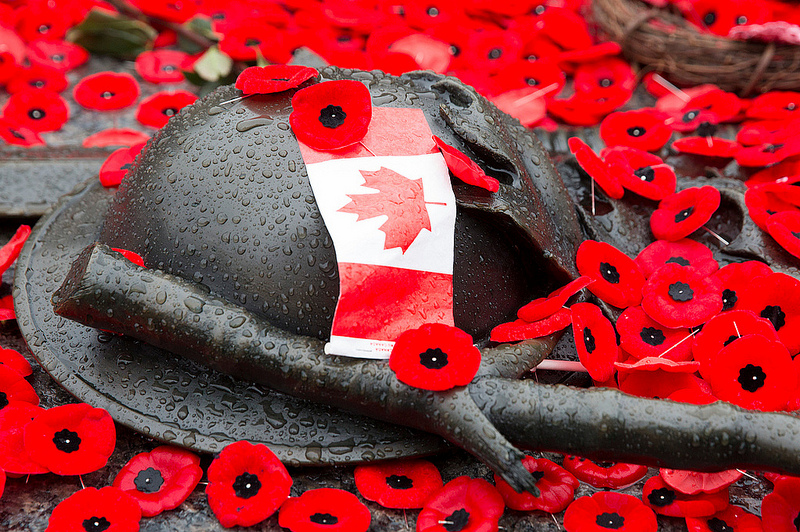Remembrance Days grow clearer in retrospect. They remember past wars after all, not wars happening now or about to happen. Those are contentious; they involve arguments and disagreements about whether they should proceed. Past wars are simply past. The remembrance focuses on those who suffered or died in them and didn’t deserve to, which is the vast majority in all wars.
The History Channel ran a pair of preparatory series last week. One was The World Wars, a silly parade of actors playing Great Men who made lonely decisions that led to inevitable victory or defeat. We saw Hitler ream out Mussolini in accented English. It’s U.S.-made. Only Americans render foreign languages that way. The other was War Story, a Canadian series that’s almost anti-dramatic. It’s entirely veterans’ voices — like a burdened old warrior recalling how he left a comrade to die in the water on D-Day because there was no choice. There’s very little justification or politics in it and lots of sadness.
In my own prep for the day, I read Stephen Mitchell’s recent translation of Homer’s Iliad, the greatest war story ever told, at least in the western canon. In fact, it could be called War Story, that’s all it is. It contains neither the abduction of Helen, which led to the Trojan War, nor the Trojan horse, which ended it. It’s just a slice of war happening over a few weeks during the conflict, centring on Achilles’ childish behaviour. We don’t even hear about the arrow in his heel that killed him. It starts in the middle and ends there.
So what’s great about it? The violence is graphic, unsentimental and vast. Spears pierce necks, nipples or stomachs, guts pour out while dark or mist takes over. The ebbs and flows of battle are mysterious and unpredictable. One side advances, then retreats as the other attacks, none of it due to the genius of generals or leaders. Homer explains it by the intervention of gods on behalf of their favourites. But their motives are capricious and arbitrary; and they must be devious so as not to antagonize Zeus, the boss god. It’s a way of making sense of senselessness, while acknowledging it. To the degree there’s redemption, it’s when each side recognizes the nobility, or just similarity, of the other. So King Priam of Troy comes to Achilles’ tent to reclaim his son Hector’s body, which Achilles has tried to defile — but the gods prevented it. They have a wary reconciliation, recalling to me the Christmas Day soccer games and informal truces in No Man’s Land of the First World War.
French philosopher-mystic Simone Weil, who died at 34 during the Second World War, wrote about Homer’s “extraordinary impartiality.” He was Greek, it’s clear who “our side” is; but he looks on everyone with a stunning objectivity and open-handedness. They all get their space as human, perplexed and caught up. Of course, he was writing 500 years after the events, but it’s still impressive. To strike this note today you must be either an exquisitely subtle mind like Weil or a good soul who was there. In War Story, a veteran describes entering a death camp and seeing a shed full of corpses, many of them kids. They brought some of the camp guards to see it. The guards thought we were going to shoot them, he says. The interviewer asks if he wanted to. After thinking, he says No, anyone could have done that. Then he adds that he doesn’t understand it.
It seems to me this benign objectivity — empathy and generosity toward all — should be the mood of Remembrance Day. After all, it isn’t called Armed Forces Day or Support Our Troops day — which have their own place. That’s what makes it national and unifying. We may disagree about current deployments and military policies, but we are all heir to the past and we’re the only ones left to honour those who didn’t get to live out their lives as they deserved to.
That’s why I disliked injecting the Islamic State deployment into this year’s ceremonies. That’s still a live debate. Remembrance Day is like the Unknown Soldier. Its strength is its generality and its ability to unite, not divide.
This column was first published in the Toronto Star.
Photo: pmwebphotos/flickr



